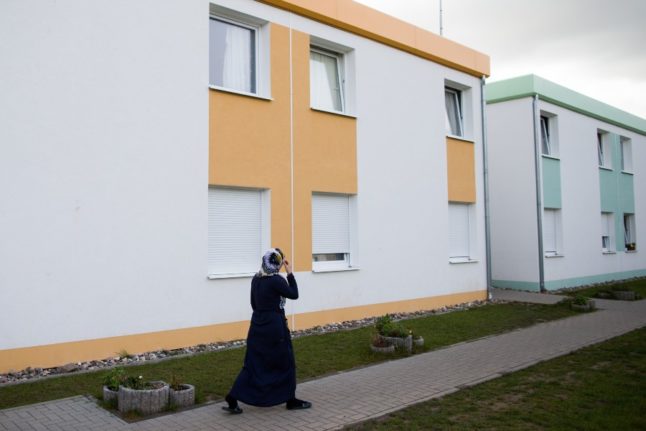In the first nine months of this year there were more such attacks than in the entire previous year, according to a response from the German government to a request from the Left Party.
According to the information, 1,515 such attacks were counted in the first three quarters of this year, after 1,371 attacks in the whole of 2022.
Refugee accommodation was the crime scene or target of a politically motivated crime in 30 cases in the third quarter of this year, three times violently. This was mostly by right-wing extremists, according to statistics seen by German press agency DPA.
The vast majority of politically attacks on refugees and asylum seekers, 375 out of 417, came from right-wing extremists, with others having an unclear motive or motivated by what German statistics call “foreign ideologies”. An example of this could be clashes between Turkish and Kurdish nationalists.
READ ALSO: Refugees in Germany ’10 times more likely’ to be hate crime victims: report
A further 55 of the attacks were categorised as violent.
“Refugees in Germany are attacked, humiliated and treated with hostility every day,” Left Party MP Clara Bünger told DPA. She thinks that federal and state governments urgently need to develop and implement suitable protection concepts.
Bünger sees the current debate about asylum issues as one reason for the increase in attacks this year. In her view, this “prepares the ground for racist mobilisations on the streets and acts of violence against refugees.”



 Please whitelist us to continue reading.
Please whitelist us to continue reading.
Member comments